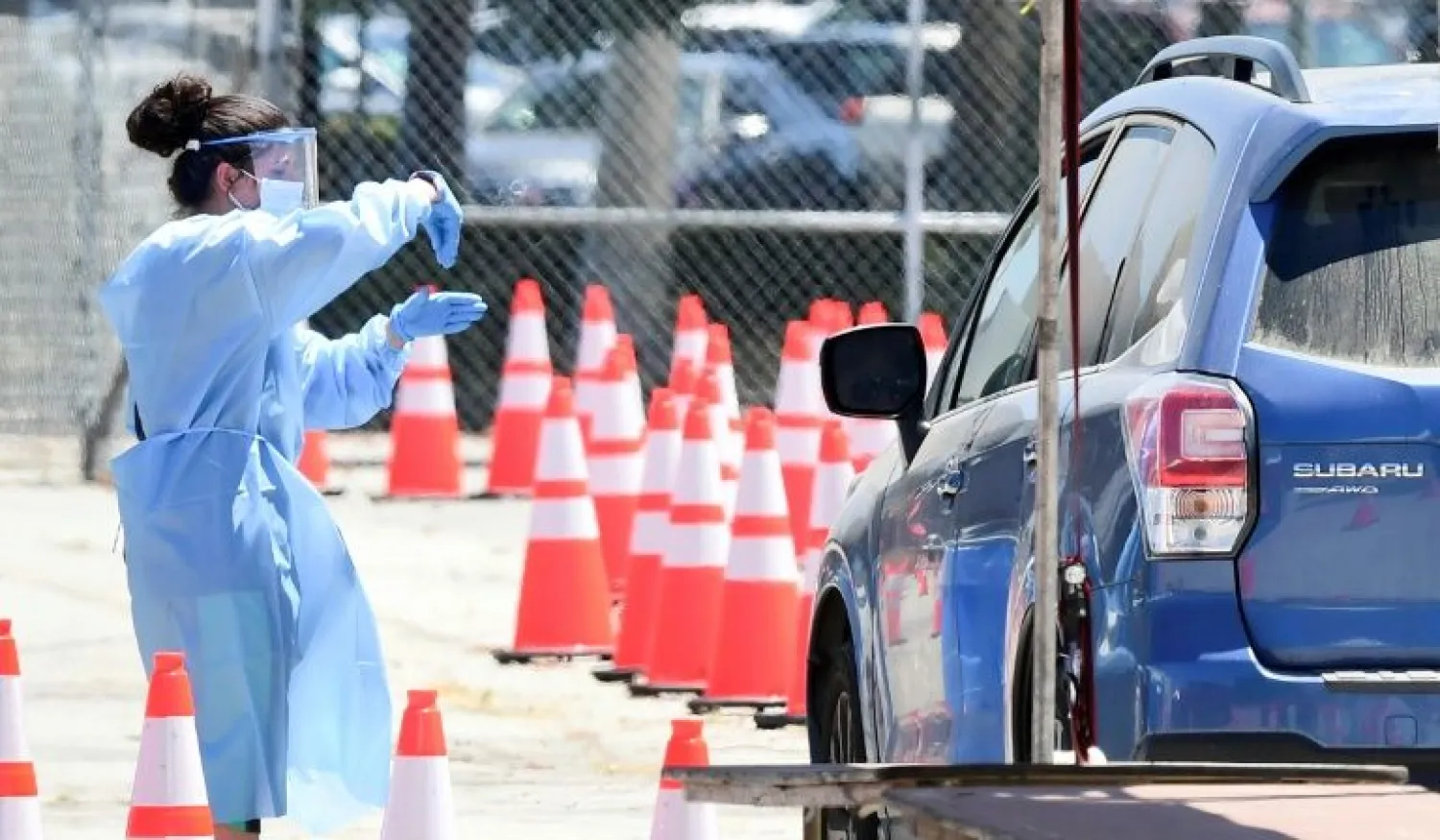The scale of economic devastation from the pandemic was laid bare on Thursday as Western economies recorded historic slumps, just as resurgent caseloads forced many countries into agonizing new trade-offs between health and financial stability.
Six months after the World Health Organization declared a global emergency, the novel coronavirus has infected more than 17 million people worldwide.
The WHO warned Thursday that young people are "not invincible" and were helping to drive resurgences in many places that had largely curbed the disease.
"Spikes of cases in some countries are being driven in part by younger people letting down their guard during the northern hemisphere summer," said WHO chief Tedros Adhanom Ghebreyesus.
COVID-19 has killed more than 668,000 people and is forcing governments into a persistent balancing act between saving lives and preventing economic devastation.
Nowhere is that challenge more evident than the world's hardest-hit nation -- also the world's biggest economy -- with the United States posting a second-quarter loss of 9.5 percent compared with the same period a year ago, the worst figure on record.
If that trajectory carried through the entire year, its economy would collapse by nearly a third (32.9 percent), the data showed.
Historic contractions were additionally recorded in Germany (10.1 percent), Belgium (12.2 percent), Austria (10.7 percent) and Mexico (17 percent).
Across the globe, companies were also taking a hit with Volkswagen, oil producer Shell, UK bank Lloyds, and Japanese consumer electronics giant Panasonic all reporting huge losses.
With travel down to a trickle, aerospace giant Airbus said it burned through more than 12 billion euros in cash in the first half of the year, with a net loss of 1.9 billion euros ($1.4 billion) and plans to cut production by 40 percent.
But several Big Tech firms delivered better-than-expected results Thursday, underscoring growing consumer reliance on giants like Amazon during the pandemic as well as their extraordinary economic power.
Apple profits rose eight percent to $11.2 billion, Amazon meanwhile said profits nearly doubled to $5.2 billion and Facebook said its profits doubled to $5.2 billion compared with the same period last year.
Global daily cases are now approaching the 300,000 mark, with the curve showing no sign of flattening -- it took just 100 hours for one million new cases to be recorded.
The US counted 1,379 new deaths in the 24 hours before 8:30 pm Thursday (0030 GMT Friday), plus another 72,238 new infections.
And the country also recorded another grim milestone: the death of Buddy, the first US pet dog to test positive for the virus. The seven-year-old German shepherd died after suffering from difficulty breathing and other symptoms for several months.
In Japan, Tokyo's governor called for restaurants, bars and karaoke parlors to shut earlier as the capital reported a record number of new infections.
Sweden, whose controversial softer approach to curbing coronavirus has received worldwide attention, said it would encourage people to keep working from home into next year where possible, as the country passed 80,000 recorded cases.
And Mexico became the world's third hardest-hit country in terms of deaths as it notched more than 46,000 fatalities, according to a tally maintained by AFP.
- Island resurgences -
Two island countries that were early poster children for containing the virus offered warnings against complacency on Thursday.
In Australia, there were 723 positive tests in the southeastern state of Victoria alone, well beyond the previous nationwide record of 549 cases set on Monday.
And Iceland recorded its first hospitalization since mid-May, as well as 31 new cases, forcing the government to reimpose social distancing and masks, and limit the size of gatherings to 100.
Hong Kong, which was also initially lauded for its coronavirus response, is struggling to balance fears of a third wave among its 7.5 million residents, which authorities fear could cripple the healthcare system, against anger at new restrictions.
Just a day after restaurants were banned from serving customers indoors, the decision was reversed following a torrent of online criticism over images of mostly blue-collar workers forced to eat on pavements and in parks -- and even inside public toilets to escape a torrential downpour.
South Africa faces a similar dilemma and pushed back its nighttime curfew by an hour to 10 pm to help the devastated restaurant sector, despite a recent surge in cases.
Ivory Coast however bucked the trend, announcing that bars, nightclubs and cinemas would reopen on Friday.
The EU meanwhile carried out its fortnightly update to its list of safe countries. US travellers are still barred and Algeria was removed after a spike in cases.
The safe list currently consists of Australia, Canada, Georgia, Japan, Morocco, New Zealand, Rwanda, South Korea, Thailand, Tunisia and Uruguay -- and would also include China if Beijing reciprocated.









